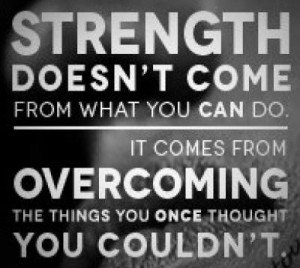Friends,
This blog post is for those who live among us who are post deployment, waiting for life to get better. Whether a returned service member, loving family member, or one, maybe a friend or a co-worker, watching the challenge unfold of adjusting to the New Normal after being in a warzone far away.
 I wrote “Accepting the Ashes-A Daughter’s Look at Post Traumatic Stress” in 2004, after my own veteran father (two combat tours in Vietnam) died. Through a series of events, my book got in the hands of a Chaplain at at VA in southern Oregon. From there, and since then, my little book has been used by Chaplains and National Guard Family Readiness Units in a variety of states. My book has also been used for a few years as a resource in the VAs Veterans Community Outreach Initiative (Chaplains help train rural Clergy to assist recently returned servicemembers and families). Every year, since 2005, I receive a few orders, from 1 to 1,000, and each year more veterans and their families read my book. I receive emails like the following each year:
I wrote “Accepting the Ashes-A Daughter’s Look at Post Traumatic Stress” in 2004, after my own veteran father (two combat tours in Vietnam) died. Through a series of events, my book got in the hands of a Chaplain at at VA in southern Oregon. From there, and since then, my little book has been used by Chaplains and National Guard Family Readiness Units in a variety of states. My book has also been used for a few years as a resource in the VAs Veterans Community Outreach Initiative (Chaplains help train rural Clergy to assist recently returned servicemembers and families). Every year, since 2005, I receive a few orders, from 1 to 1,000, and each year more veterans and their families read my book. I receive emails like the following each year:
I retired in 2008 with 20 years and two tours in Iraq. I struggled with a fairly serious bought of depression and PTSD. When I say fairly serious, I sought counseling or else I’d have lost my wife of 18 years. I feel like the counseling may have even saved my life.
I am purchasing your book for personal use. I don’t do counseling anymore or take medication. My depression is behind me. I’ll carry some effects of PTSD with me for the rest of my life. I have a wife and four kids, three girls and a boy. When I was struggling with depression although I tried not to, I hurt everyone. One of my teenage daughters I clashed with exceptionally bad. She was at a rebellious stage in her life exactly at the wrong time. We don’t see each other much, or talk much, and when we do it’s hard. I thought of her when I saw your book. I’m forever seeking ways to understand what went wrong and why, and also how the other person felt. I hope your book helps me do that.
After the workshop, it became clear that if I want to get my book to people who need it, I need to learn the details that will help me do just that. The government is detailed, overworked, and busy. If I am to be able to catch the attention of decision makers who choose which books to offer and use in their work with veterans and families, I need to know the language and process used by these government decision makers.
I set an appointment with Ms. Holbert with the Small Business Develoment Center and we met a couple of days ago. After an hour, I was exposed to a whole new world that I now have to learn how to nagivate. I learned about the importance of the following words/codes and how they can help me get my book in front of the people who help veterans= NAICS codes, www.fbo.gov, www.gsa.gov, DUNS, CAGE, TPIN, www.ccr.gov (where I was already listed, but my profile was deficient), Capability Statement, www.vetbiz.gov, www.grants.gov and www.fedbiz.com . While my head swims with all this new info, and how I might be able to utilize it, I also think about all the post deployment men and women, and their loved ones, who have to fill out forms, learn how to maneuver through the obstacle course that is the VA, make phone calls, wait, and wait some more, in order to get what they need for their mental, emotional and spiritual health.
At the end of my book I write:
Demand the right to heal.
Each individual and family in every culture deserves the right to heal the wounds of war. Since everyone who participates in war, no matter how they personally feel about it, is affected, helping our soldiers, who are also our fathers, sons, daughters, lovers and friends, heal their bodies, hearts and minds, is a necessity, not a privilege. By now, it’s obvious, that it is challenging to help the soldiers deal with what they are experiencing while doing their tour of duty, so the healing must begin once they come home. This makes healing a group effort. My advice? Be bold, be persistent, be the squeaky wheel. Do whatever it takes to get some help and do not feel ashamed for asking.
 It is Memorial Day, a day when we remember American service members who have died while in the Armed Forces. For this Memorial Day, 2012, a decade of war has left many casualties. Today I am thinking about the war casuality of the Family.
It is Memorial Day, a day when we remember American service members who have died while in the Armed Forces. For this Memorial Day, 2012, a decade of war has left many casualties. Today I am thinking about the war casuality of the Family.